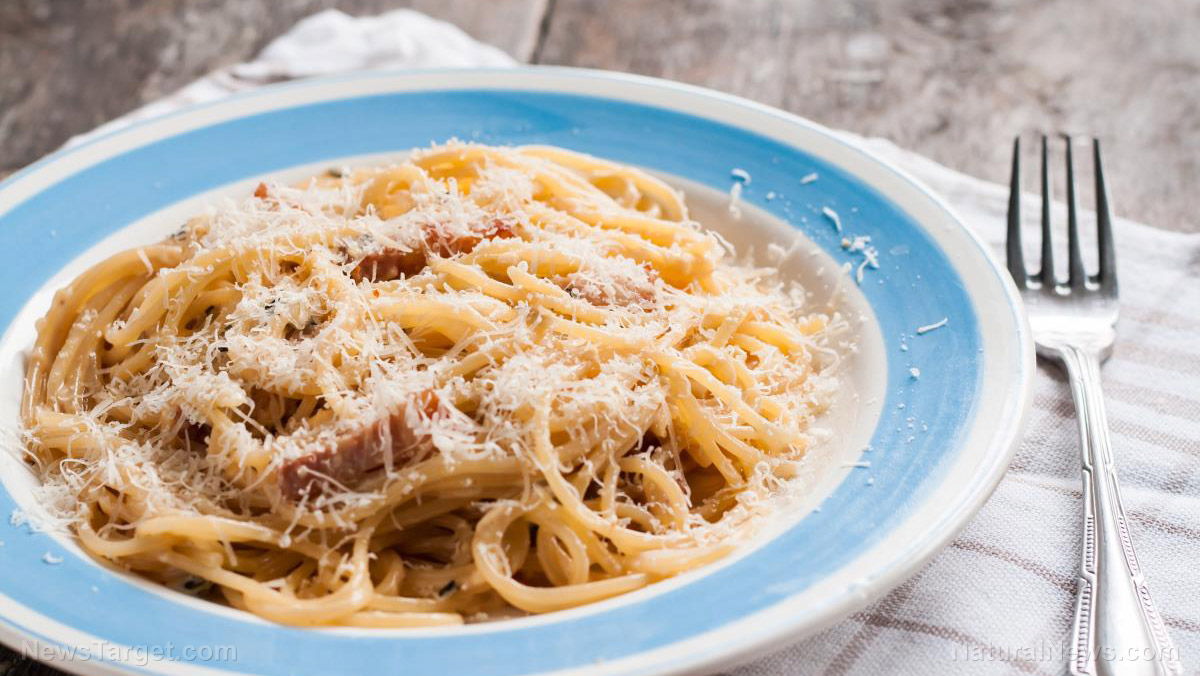Food storage tips for beginners: How to stock your prepper pantry
04/30/2020 / By Divina Ramirez

Disasters can strike at any time. From storms to major SHTF situations, it’s never a bad idea to prepare for them.
Seasoned preppers know that a well-stocked pantry can make all the difference between survival and starvation, especially when worse comes to worst. But seasoned preppers don’t just stockpile haphazardly, a common rookie mistake. After all, an emergency stockpile that ticks all the essential food groups will see you through an SHTF scenario better than a stockpile of junk food.
So before you head out to the supermarket, here are six food storage tips to help you avoid rookie mistakes. (h/t to SHTFPlan.com)
Stockpile on essential shelf-stable foods
The key to a well-stocked pantry is to have plenty of nutritious shelf-stable foods like grains, oils and dry ingredients. For starters, here is a list of foods to buy in bulk the next time you head to the supermarket:
- Flour – Store-bought bread might be scarce in times of disaster, so it’s a good idea to stock up on flour. Avoid the white variety since it is made from refined grains.
- Whole grain oats – Oats are an excellent source of fiber, which helps promote digestion and metabolism. When stored in an airtight container, oats will stay fresh for at least 12 months.
- Brown rice – Brown rice is rich in clean carbohydrates that provide energy. Like oats, brown rice can last a good while when stored properly.
- Pasta and pasta sauce – If you or a member of the household doesn’t like rice, opt for pasta instead. It is also a good source of carbohydrates, and it is an extremely versatile food as well. Don’t forget to stock up on pasta sauce as well.
- Beans – Beans are a nutritious, plant-based source of high-quality protein. Dried beans can be stored without refrigeration, but beans can also keep in the freezer for about six months.
- Healthy oils – Stock up on a variety of heart-healthy oils like olive oil, coconut oil and sesame oil. Oils like these can be used for a variety of home remedies as well, not just for food.
- Baking soda – This versatile kitchen staple is commonly used to allow baked goods to rise, but it can also be used to clean dirty surfaces and eliminate odor.
- Baking powder – This ingredient helps leaven and add volume to pastries. It also helps improve the texture of baked goods.
- Yeast – Yeast is a key ingredient in the production of baked goods. Make sure you have enough on hand, especially if you bake frequently.
- Vinegar – You will need plenty of vinegar for when you pickle fruits and vegetables. This is also another ingredient in several home recipes, such as for cleaning.
Additionally, it’s a good idea to have an assortment of spices on hand. Food might become monotonous and stale after a while, especially if you eat the same five dishes or so. Spices like turmeric, cinnamon, cloves and nutmeg also work as natural remedies for minor ailments, infections and injuries.
Can and dehydrate foods
Home-canned and dehydrated foods can last for a long time without refrigeration. Plus, even if you don’t have a vegetable garden, it’s good practice to learn natural food preservation methods to prepare for a possible food crisis in times of disaster. (Related: Home canning basics: Which foods are safe for canning?)
Stock up on sprouts
Sprouts are a good source of essential vitamins and minerals if you don’t have access to fresh fruits and vegetables. Sprouts also store well when dried, frozen or pickled. They are also incredibly easy to grow from beans and other seeds, and you can expect to harvest most varieties in just three to five days.
Store water
Your normal water supply can also run short when worse comes to worst. To avoid water shortage, invest in large containers like barrels and gallons and store enough water for the entire household. Have bleach on hand to treat dirty or contaminated water as necessary, or invest in a water filtration system.
Freeze meat and fish
Although meat and fish won’t store as well as dried or canned fruits and vegetables, it’s possible to extend its shelf-life for a few months when stored and frozen properly. For cost and space-efficient storage, buy meat or fish in bulk and pre-portion into airtight containers. This way, you can thaw only as much as you need for a dish.
Store fruit and vegetable seeds
It’s also a good idea to stock up on seeds you can grow in case of a food crisis. Keep an assortment of seeds that include root vegetables, stalky vegetables, leafy greens, berries and other fruits.
Even with all the available science and technology, we can’t tell for sure when the next disaster will strike, or what it will be. In the face of disaster, a well-stocked pantry can significantly maximize the chance of survival.
Sources include:
Tagged Under: bug out, clean food, disaster, emergency food, food collapse, food supply, Gear, how-to, off grid, preparedness, prepping, SHTF, starvation, Stockpile, survival, survival food




















